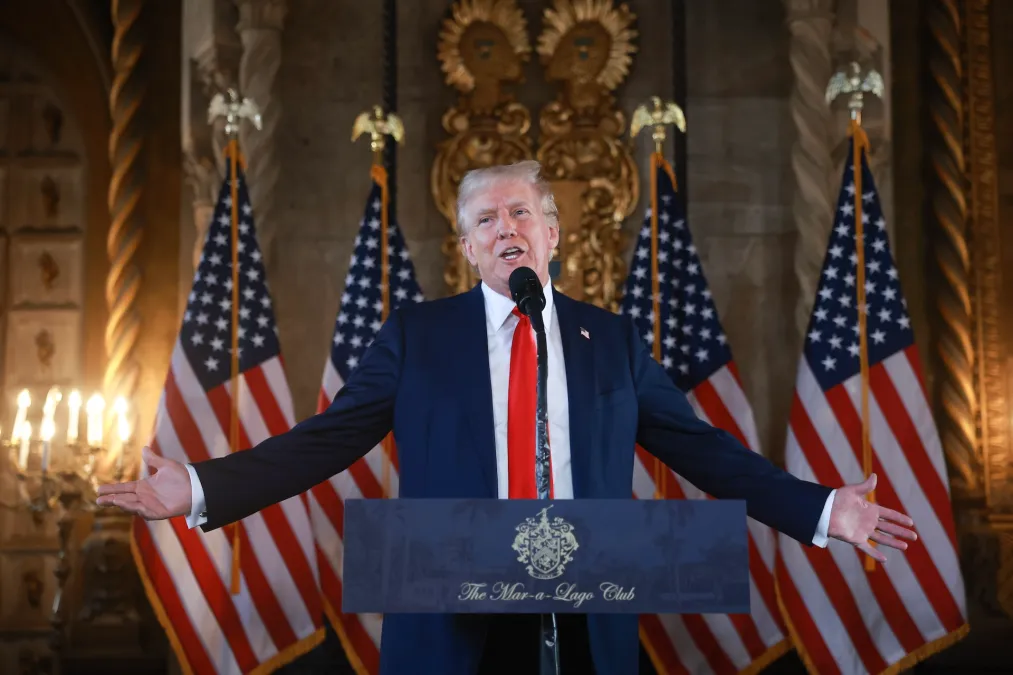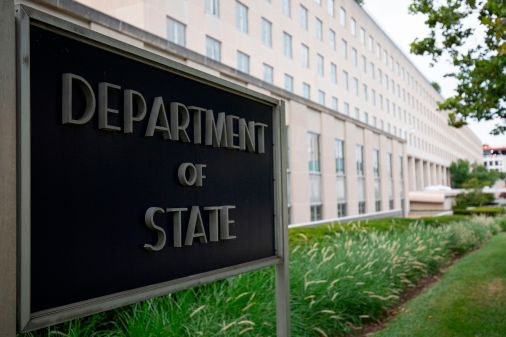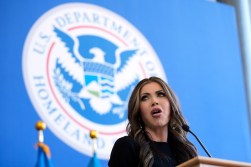Trump campaign says emails were hacked, jumpstarting ‘a wild ride’ to election day

LAS VEGAS — The apparent hack-and-leak operation targeting former President Donald Trump’s presidential campaign portends a potential “wild” election season, a former top U.S. cybersecurity official said Sunday.
Rob Joyce, the former National Security Agency director of cybersecurity who retired in March, told a large crowd at the DEF CON security conference that based on news and industry reports, it seems “we are in a cycle again, with hack and leak already starting.”
Joyce told the crowd he would not speculate on who was behind the campaign and had no inside information, but noted that Russia, Iran and China have all, to varying degrees, engaged in election interference operations.
“Starting this early, it’s pretty surprising, right?” Joyce said. “Buckle up for October, because I think we’re in for a wild ride.”
U.S. intelligence officials told reporters in July that Iran was one of several countries seeking to either influence or interfere in U.S. elections, alongside Russia and China.
Microsoft’s Threat Analysis Center revealed Thursday that hackers connected to Iran’s Islamic Revolutionary Guard Corps (IRGC) sent a phishing email to a high-ranking official on a presidential campaign from the compromised account of a former senior adviser. Microsoft did not identify the campaign or the officials, but Politico reported Saturday that the Trump campaign was targeted and a persona going by the name “Robert” was emailing internal Trump campaign materials to the news organization starting July 22.
Trump campaign spokesperson Steven Cheung told Politico that “foreign sources hostile to the United States” were behind the hack and leak, pointing to Microsoft’s report.
Cheung did not respond Sunday to CyberScoop questions about the incident. A Microsoft spokesperson declined to answer additional questions about the company’s report or public reports about the Trump campaign’s involvement.
A spokesperson for the Permanent Mission of the Islamic Republic of Iran to the United Nations told CyberScoop on Sunday that “we do not accord any credence to such reports. The Iranian Government neither possesses nor harbors any intent or motive to interfere in the United States presidential election.”
Cheung told the Washington Post that “the Iranians know that President Trump will stop their reign of terror just like he did in his first four years in the White House.”
The spokesperson for the Permanent Mission to the United Nations declined to comment on Cheung’s claim.
Microsoft researchers said the operation targeting the campaign was just one of several Iranian-linked efforts to meddle in the 2024 U.S. presidential elections, along with launching covert news sites seeking to inflame both sides of the political divide, setting up for intimidation and inciting violence, and the compromise of a county-level government employee in a swing state.
The U.S. government in 2021 indicted two Iranian nationals for their roles in what prosecutors described as a sprawling effort to interfere in the 2020 elections. That campaign included sending emails to Democratic voters purportedly from the right-wing nationalist Proud Boys demanding that they vote for Trump, as well as attempting to gain voter information in nearly a dozen states and compromising a media company’s content management system.
Alongside the indictments, the U.S. Treasury Department sanctioned six Iranians and one Iranian company, Emennet Pasargad, for various roles in the election interference scheme. On August 5, Lab Dookhtegan, an anti-Iranian government persona with a history of outing Iranian cyber operations, warned in its Telegram channel that the Iranian government was planning to “harm the natural process of the elections in the United States.”
The 2020 operations were coordinated via Emennet Pasargad, Lab Dookhtegan said August 5, whereas this “time, cyber groups affiliated with the regime have a mission to pursue these sinister goals and increase tension in the infrastructure of the elections in the United States of America.”






